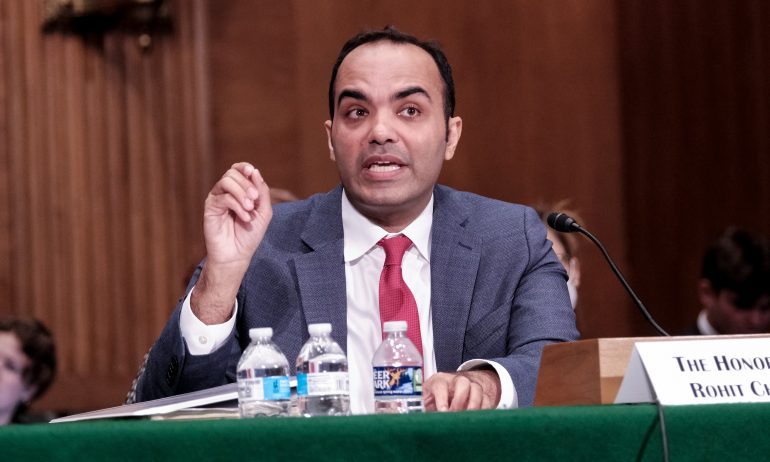CFPB: ‘Enormous’ Savings for Americans by Limiting Overdraft Fees

Many or all of the products featured here are from our partners who compensate us. This influences which products we write about and where and how the product appears on a page. However, this does not influence our evaluations. Our opinions are our own. Here is a list of our partners and here's how we make money.
Large bank overdraft fees may become a thing of the past as part of the Biden administration's push against so-called “junk fees.”
The Consumer Financial Protection Bureau this week announced proposed restrictions on overdraft fees that it says could save Americans over $3.5 billion each year. Major banks typically charge as much as $35 for each overdraft transaction; under the new rule, those fees could plummet to as low as $3 per transaction.
“Ultimately, we think the result is going to be an enormous amount of savings, especially for families who live paycheck to paycheck,” Rohit Chopra, director of the CFPB, told NerdWallet. “We'll see a lot fewer surprises and shocks when it comes to overdraft fees.”
The CFPB’s proposed restrictions — which would go into effect in October 2025 — will close a loophole that allows banks to issue overdraft loans without adhering to consumer protections required by the 1968 Truth in Lending Act. The act requires banks to provide consumers with loan terms, interest rates and other loan cost information when issuing credit card or bank loans, but these rules haven’t applied to banks lending money to cover overdrawn accounts. This has allowed banks to issue overdraft loans that come with steep fees without first notifying consumers.
Under the new proposed rules, banks would have two options for how they treat overdraft protection: offer overdraft loans as a profit-generating measure, or offer overdraft loans as a courtesy. If banks opt for the first option, they’ll be required to treat overdraft loans like any other bank loan and disclose all fees and interest charges upfront, so customers can shop around for a loan with better terms.
Banks that choose the second option would only be allowed to charge fees in line with their costs, or “in accordance with an established benchmark,” per the CFPB. The agency has proposed benchmarks of $3, $6, $7 or $14 — meaning that, at most, customers would be charged a $14 overdraft fee.
“What we're doing is pretty straightforward,” says Chopra. “If you're borrowing from your bank, you should have the same protections that you have when it comes to other loans. That means you'll get clear disclosures about the interest rate that you're paying, and you'll have some meaningful limitations when it comes to fees.”
Banking industry lines up against the proposal
Banking leaders slammed the proposed regulations, and more industry pushback seems likely. Rob Nichols, president and CEO of the American Bankers Association, said in a statement that the CFPB’s regulations are the agency’s latest attempt to “demonize and mischaracterize highly regulated and clearly disclosed bank fees for a service that surveys consistently show Americans value and appreciate.”
As well, the president and CEO of the Consumer Bankers Association, Lindsey Johnson, echoed those sentiments. “This proposal on overdraft price setting is just the latest in a myriad of unnecessary and costly regulations by this administration that seems guided by political polling, rather than by sound policy created by what should be independent agencies,” Johnson said in a statement.
While 17% of U.S. households pay at least one overdraft fee in a given year, people living on tight budgets will especially benefit from the new restriction, Chopra says. CFPB research found that 9% of consumers paid over 10 overdraft and NSF (nonsufficient funds) fees per year, for a median outlay of $380. Collectively, they paid 79% of all combined overdraft and NSF fees.
The new restriction would apply to banks with more than $10 billion in assets. This covers 175 banks, including the largest U.S. banks, such as JPMorgan Chase, Bank of America, Wells Fargo and Capital One.
The CFPB is seeking public comment on the proposed restrictions. Comments must be received on or before April 1, 2024.
Photo by Michael A. McCoy/Getty Images News via Getty Images
On a similar note...
Find a better savings account
See NerdWallet's picks for the best high-yield online savings accounts.


